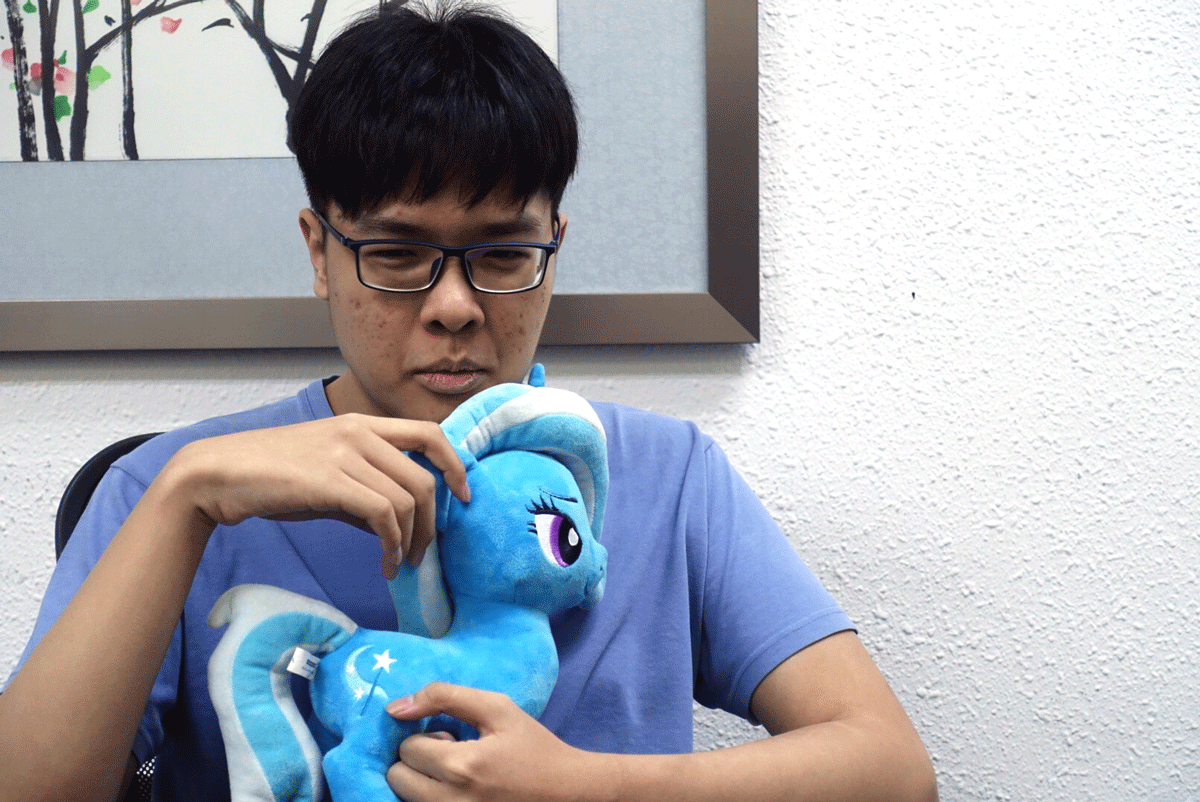This is what comes to mind when one first hears of Singapore’s Brony community.
A portmanteau of the words “bro” and “pony”, a Brony is an adult-male fan of the animated cartoon series My Little Pony: Friendship is Magic, which follows the pastel-coloured adventures of 7 magic ponies. Created with young girls in mind, the show—now in its 4th remake—has, since 2014, garnered an unexpectedly large following of men aged 13 to 35.
In Singapore alone, there are 1,176 known Bronies.
“Closet bronies are more common that you think,” says Alfian, 22 a former Bronie. At work, at school and on the streets, he’s seen pictures of My Little Pony in people’s phones and plushies in the crevices of their bags.
But when asked about it, they are quick to brush it off.
“Many people don’t want to be associated with liking such things,” he tells me.
In a way, it’s easy to understand why. Call it gender norms or cultural conditioning or whatever you like, but something about grown men fawning over a purple unicorn-pony named Twilight Sparkle can’t help but set off one’s alarm bells.
Yet where there are haters, there are also supporters. For every misconception there is of Bronies, there is an article that seeks to normalise their behaviour.
“They are just guys. Dudes. Dudes who like My Little Pony,” writes Kevin Fallon for The Daily Beast. It’s no big deal folks, they seem to say.
Except, it is a big deal. For Singapore’s Bronies at least, My Little Pony has saved their lives.
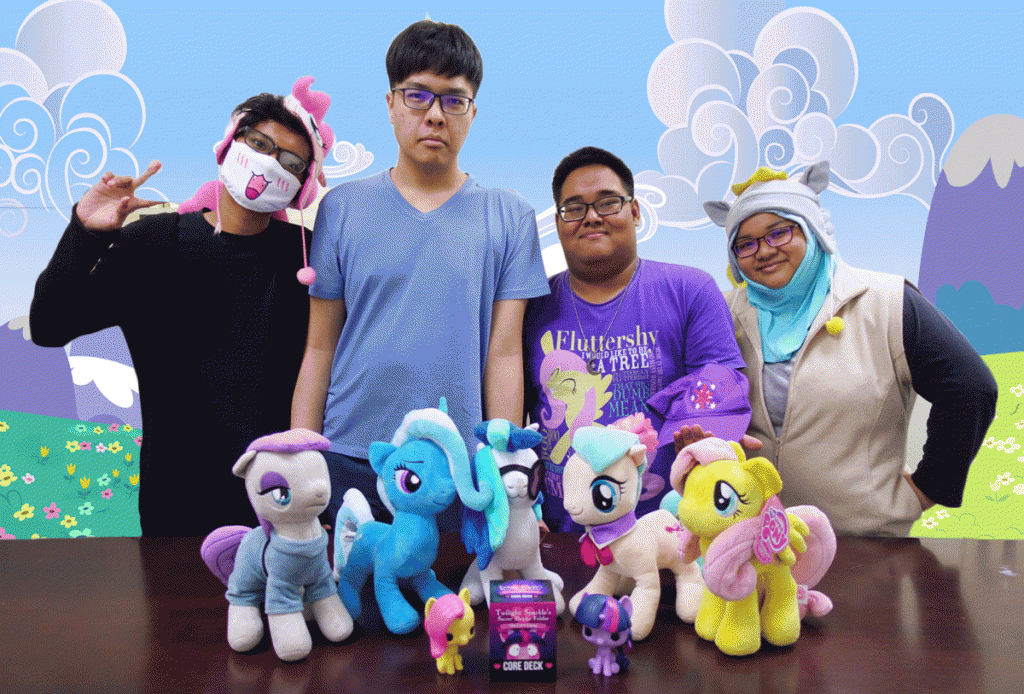
At 20, he’s one of the moderators of the Singapore Bronies Society (SBS) Facebook page. More than just a fan of My Little Pony, he credits the show for being the reason he’s still alive today.
He suffers from mild PTSD, and comes from a history of being bullied. On top of this, he’s weathered several depressive episodes and suicide attempts. Life, to say the least, hasn’t been easy for Alim, yet he has found sanctuary within My Little Pony and the Singapore Brony community.
Like a hot drink on a cold day or a handwritten letter, sometimes it’s the small things that make us the happiest. Likewise, its the stereotypical characters, simple themes, and light-heartedness of My Little Pony—the same things that make it every bit a “kids show”—that cheer Alim up.
His biggest inspiration is Fluttershy, a soft-spoken and shy yellow pony. Despite her timid nature, she learns over the course of several episodes to assert herself and to stand up to others when the need arises.
Witnessing her bouts of courage and gradual character development was what gave Alim the push he needed to acknowledge and accept his bisexuality. Eventually, he aims to work up enough courage to come out to his family one day.
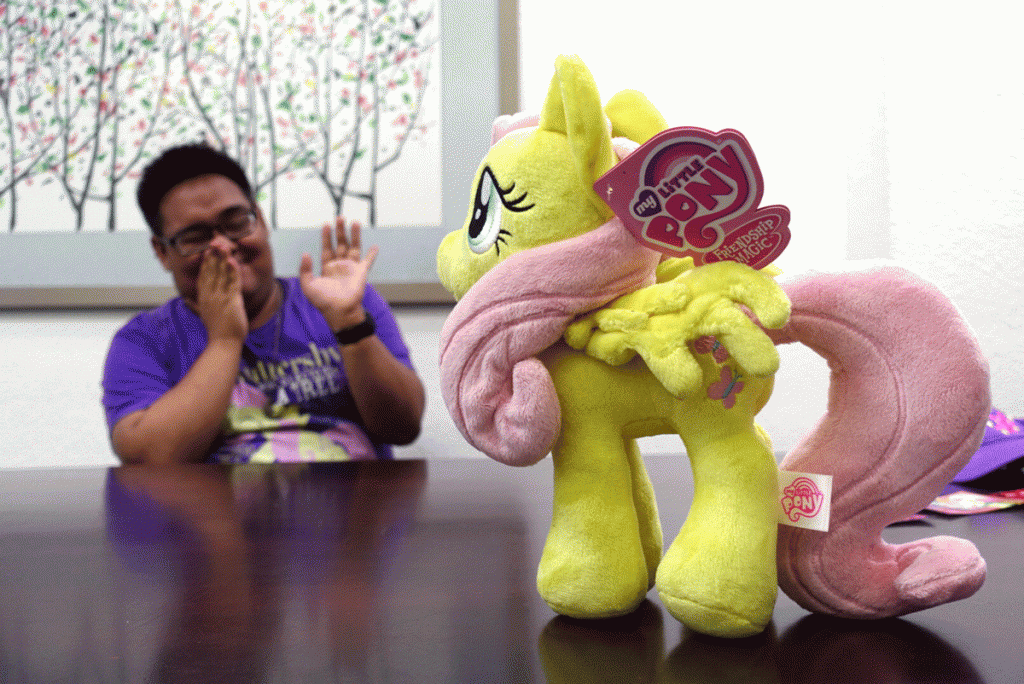
When our conversation turns to talk about the friends he’s made through the My Little Pony fandom, Alim’s voice starts to tremble and his breath catches.
“It’s cheesy, but friendship really is magic,” he tells me.
Because of the marginalised and oft misunderstood position that Bronies occupy in society, members have little choice but to look to each other for support and understanding, creating what becomes almost akin to a brotherhood.
During Alim’s depressive slumps, he is able to be honest and open with fellow Bronies, in ways that he is not able to with his other friends or family, about needing help.
Similarly within the Brony community, Yazmil Amin, 21, an SBS moderator, shares stories of younger members who would contemplate suicide as the best or only way out after being adversely affected by stress and peer pressure.
“Singapore is very competitive and it can feel like if you’re not at the top, you might as well not be in the system,” he says. Fortunately, said members would then turn to the Brony community for help and advice.
“The elders will guide and teach the young ones that sometimes it’s alright to cry it out, it’s alright to break down once in a while and to express yourself rather than keeping it inside and losing your mind.”
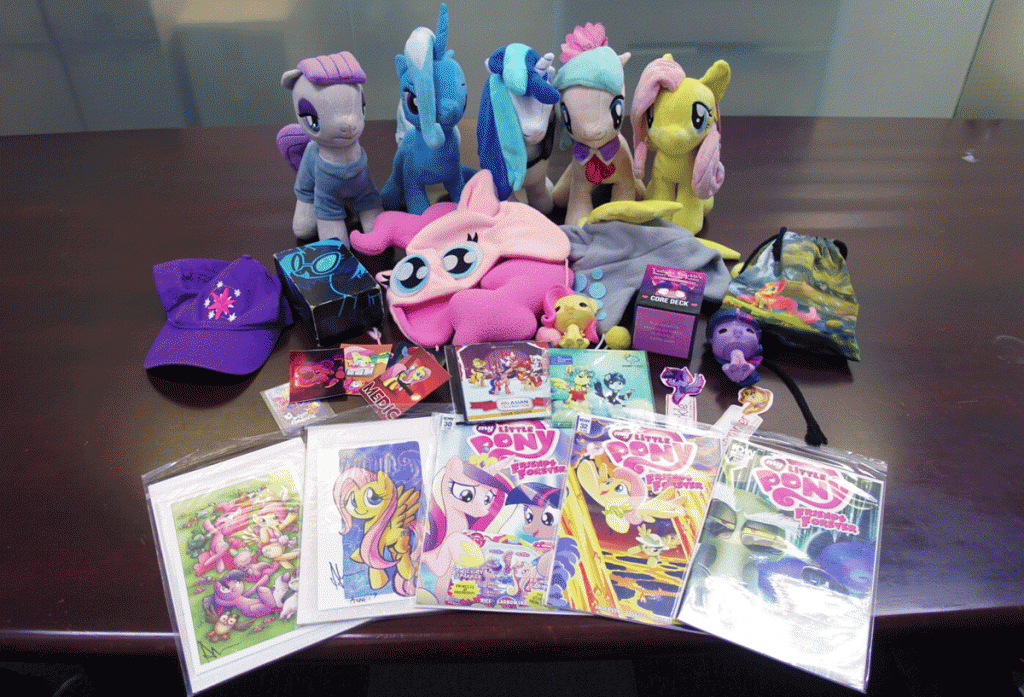
In a study conducted by Marsha Redden amongst American Bronies, she found that they were typically “single, computer-savvy men struggling socially.”
It’s no different in Singapore.
According to 20-year-old Khairul, another Bronie, many of the Singaporean Bronies he’s encountered tend to be more prone to suicidal thoughts, loneliness, and depression.
He characterises them as people who tend to “hang around on the Internet a lot, not on Facebook or Instagram, but in forums like 4chan and on websites like Tumblr.”
Being on their computers all day, Khairul believes, makes it more likely for these men to stumble across My Little Pony clips, online communities, artwork, music, and comics, and get sucked in.
As for why most Bronies tend to be male, Alfian thinks he has the answer: “Girls have better things to do than guys.”
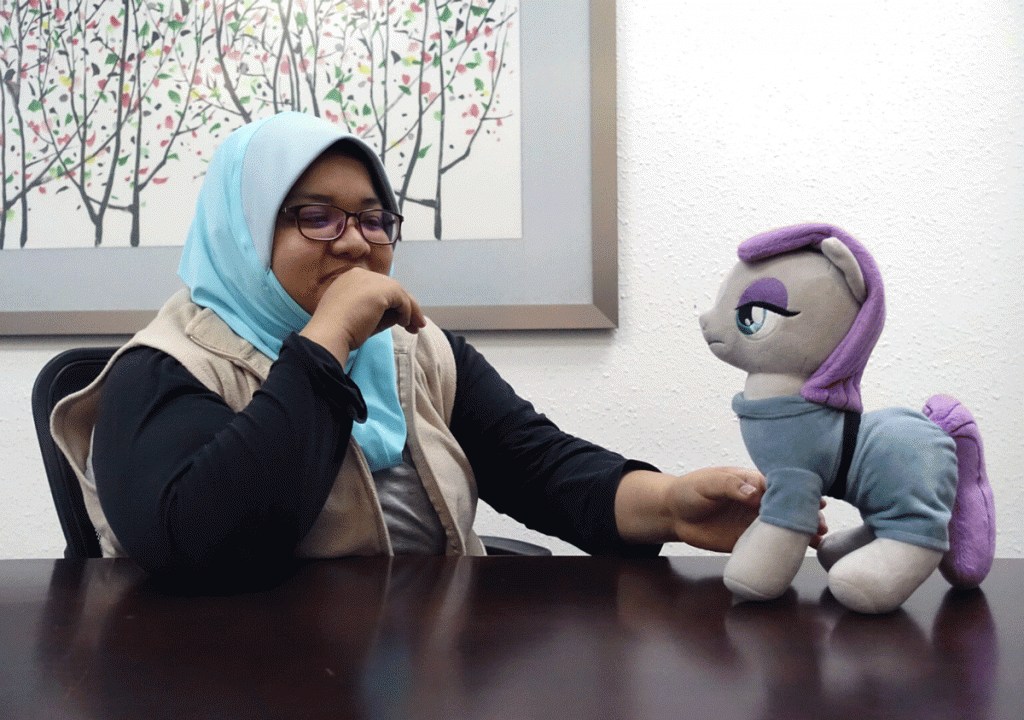
As Pinkypie, a hyper, sociable pink pony pranced on screen, I recalled something that Adiba, 25, one of the rare female Bronies in the community, had told me.
“I am a loner,” she had confessed, despite being one of the more friendly, energetic and outspoken of the Bronies.
Having come from a more traditional and conservative background, Adiba often felt as though her personality and perspectives stood out, and that she never quite belonged—at least until she met Pinkypie.
On screen, Pinkypie emerges dramatically from a cloud of magic dust playing ten different instruments all at once. This, apparently, is completely normal.
“Pinky’s just off the rails,” as Adiba had described. “Her family is styled after Amish folk so they’re very low-key, in very muted colours. She’s the only one who is bright, pink and happy.”
Although they share similar family backgrounds, Pinky isn’t afraid of being herself and her confidence is what inspires Adiba to be more like her.
Before I know it, the episode is over. The screen fades to black and the closing credits roll to the tune of a high-pitched voice singing, “My Little Pony” on repeat.
It’s annoying but also, slightly addictive.

